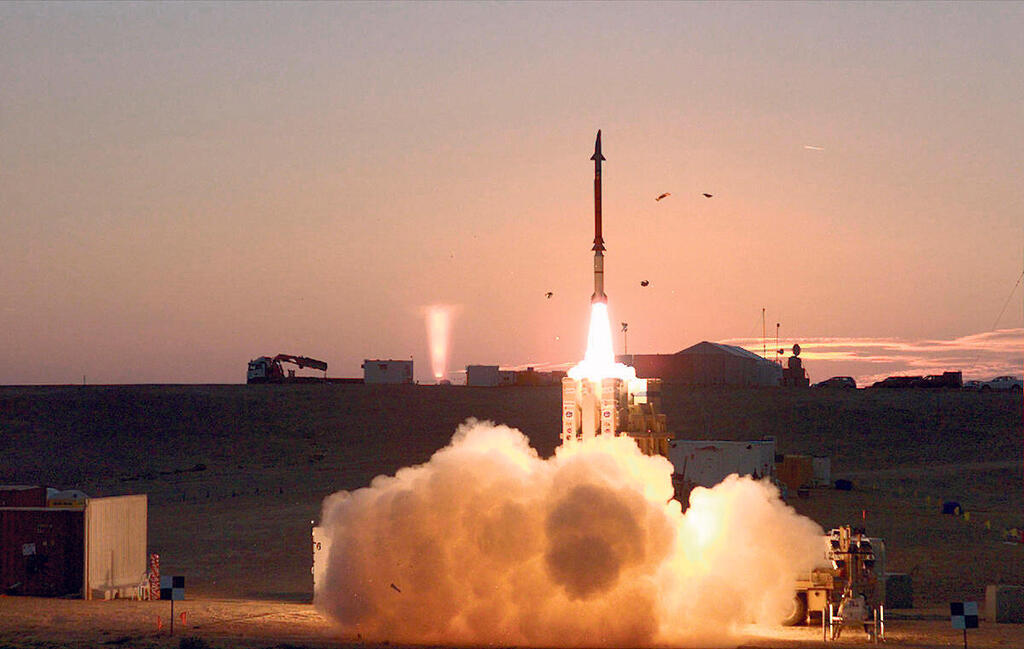
Israeli arms exports hit record $14.8 billion despite boycotts and war criticism
Europe leads surge in demand for missile defense systems, even as Gaza war draws international scrutiny.
Israel's defense exports broke an all-time record in 2024, reaching approximately $14.8 billion, even as the country remained embroiled in the longest war in its history and faced mounting political pressure, primarily from European nations, to end it.
According to data from SIBAT, the International Defense Cooperation Directorate at Israel’s Ministry of Defense, 54% of all Israeli arms exports last year were directed to European countries. These nations have been engaged in a significant arms buildup over the past three years in response to the prolonged war between Russia and Ukraine, dramatically increasing their defense budgets.
Israeli arms exports to Europe rose 19% compared to 2023. The most striking shift, however, was in air defense systems, which accounted for 48% of total exports in 2024. This surge was driven by several large-scale deals signed by Israel Aerospace Industries (IAI) and Rafael in Europe and Asia. Chief among them: Germany’s purchase of the Arrow 3 missile defense system for roughly NIS 14 billion, the largest defense deal in Israel’s history. IAI also continued global sales of the Barak MX system, while Rafael marketed David’s Sling to new clients.
European demand for Israeli weapons has been fueled by military aid to Ukraine, which has depleted many nations’ own stockpiles. At the same time, countries are modernizing their offensive and defensive capabilities, launching a wave of procurement even as many publicly criticize Israel’s war conduct in Gaza, where the conflict has lasted over a year and eight months and caused widespread destruction.
These criticisms have translated into tangible pressure: Israeli defense firms were excluded from major arms exhibitions in France, and several countries imposed boycotts on the supply of components and raw materials used in Israeli weapons production. On Tuesday, it was reported that Spain’s Ministry of Defense had frozen a $300 million Rafael deal for anti-tank missiles. A few weeks earlier, it canceled a $6.6 million contract with Elbit Systems for small arms ammunition.
Despite these headwinds, Europe remained Israel’s largest arms market in 2024, overtaking Asia-Pacific, which saw a 25% drop in imports of Israeli defense products and accounted for just 23% of total exports. Arab countries that normalized relations with Israel under the 2020 Abraham Accords, such as the UAE, Morocco, Bahrain, and Sudan, made up 12% of exports, up from just 3% in 2023. Morocco, for instance, purchased Elbit Systems’ ATMOS cannons in a deal worth €150–200 million and previously acquired the PULS precision rocket system. According to reports, Morocco also bought IAI’s Barak MX air defense system and a reconnaissance satellite.
Israel’s Defense Ministry helped drive export growth by directly signing 54% of international contracts, up from 35% in 2023, streamlining traditionally slow procurement processes.
This marked the fourth consecutive record year for Israeli defense exports, which have doubled in volume over the past five years. Yair Koles, head of the Defense Export Division, credited the growth to both the technological edge of Israeli systems, honed through years of operational experience, and the industry’s exceptional speed of delivery.
“Foreign defense companies might take seven years to deliver, while Israeli firms typically supply within two to three years, even while fulfilling IDF operational needs,” Koles said. “Since the war began, Israeli companies have doubled or tripled production and are responding exceptionally to global demand.”
Still, Koles acknowledged that graphic images from Gaza present Israel with a “major challenge” in maintaining international defense relationships. Supply chains have also been disrupted by threats to maritime shipping from Yemen’s Houthis and missile attacks on Ben Gurion Airport, which have hampered international logistics. Against this backdrop, Koles said it was difficult to predict whether Israel will break another export record in 2025.














